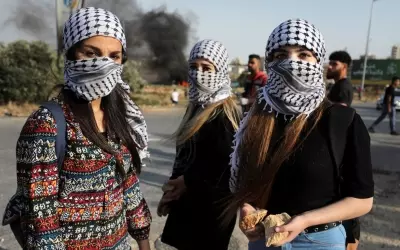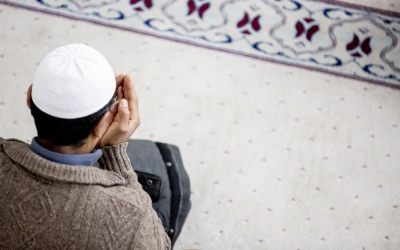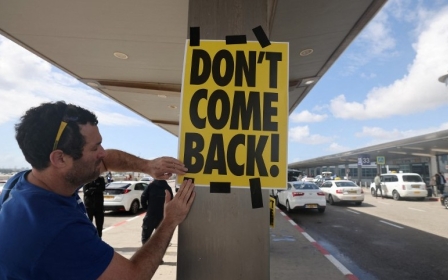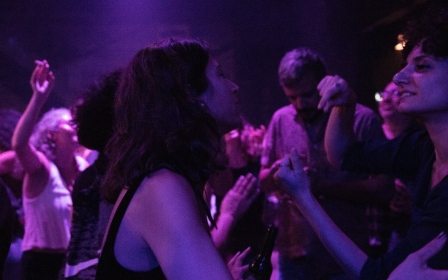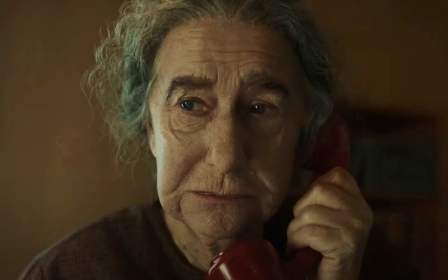Germany: Police admit people detained under ‘protest ban’ just looked Palestinian
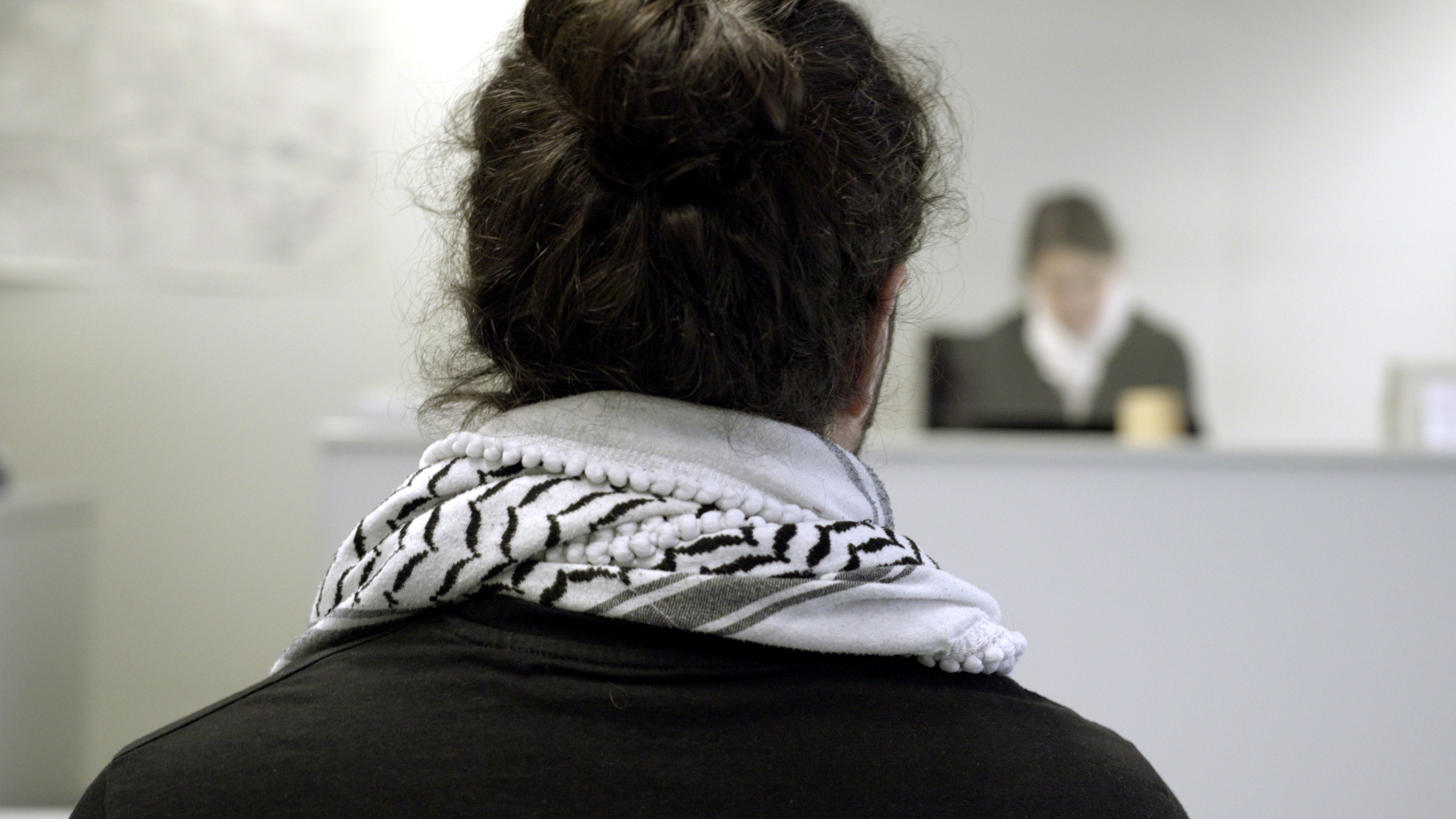
While Benjamin Netanyahu sat down for lunch in Berlin on Thursday with the German chancellor in order to secure his continued support for Israel, across town a pro-Palestinian activist was facing a judge, accused of taking part in a banned protest.
The charges date back to 15 May last year, when the Berlin police issued a sweeping ban on protests marking Nakba Day, the annual commemoration of the expulsion of hundreds of thousands of Palestinians when the state of Israel was founded.
'It's not just about silencing Palestinian voices but anyone who disagrees with the government’s colonial agenda'
- defendant in Berlin protest trial
The man in the dock is the sixth person to appear in court in recent weeks, in an attempt to overturn fines of €300 each.
While there were no major protests that day, police said at the time they had detained 127 people for defying the ban.
But the defendants have told the court that far from protesting, they were "kettled" and detained by police on the thinnest of pretexts – such as wearing the traditional Palestinian scarf known as the keffiyeh or being dressed in the colours of the Palestinian flag.
New MEE newsletter: Jerusalem Dispatch
Sign up to get the latest insights and analysis on Israel-Palestine, alongside Turkey Unpacked and other MEE newsletters
Activists say the trials show how Germany is increasingly clamping down on expressions of Palestinian identity at home while continuing its unwavering support for the Israeli occupation.
Most of the arrests happened around Hermannplatz, a central square in Berlin’s Neukölln district, home to a large Palestinian community.
‘Just meeting friends’
The first case at the end of last month was dropped after the defendant, a Jewish-American antifascist, said he had heard about the possibility of protests and only wanted to see what was going on.
He said he had neither been taking part in a demonstration nor wearing symbols of the Palestinian cause when he was surrounded by police and subsequently detained.
The case of another activist who faced trial today – a German – was dismissed on similar grounds.
But the testimony of the other defendants – including two Palestinians – has not been accepted so readily by the judges.
One said he had only been in the area to meet friends. He denied claims in a police report that he had been part of a demonstration and had ignored an order to leave the square.
“The only thing that is true is that I was wearing a keffiyeh,” he told the court. “And that is part of my identity as a Palestinian.”
Another defendant said he was carrying a rolled-up Palestinian flag that he had borrowed from a friend and wanted to return. On his way to the subway, he was surrounded by police and arrested. He disputed the police claim that he had waved the flag to the cheers of a crowd.
Another defendant said she had arrived at Hermannplatz to meet friends half an hour after the time police say a brief protest took place. They had set off from the square for a restaurant on Sonnnenallee – Berlin’s so-called "Arab Street" – when they were told by officers they could go no further.
Yesterday, for the first time, a police witness was called to explain his actions. He told the judge he and his colleague followed orders to cordon off a group of people, before leading them away one by one.
He admitted he had not seen any protest, but that his colleagues had identified and rounded up people who “stood out” because they were wearing Palestinian scarves or the colours of the Palestinian flag.
In four cases so far the judge adjourned the trial to collect more evidence, including calling further police witnesses.
The right to protest
“The police write a lot of things in their reports that are not true,” the defendant’s lawyer, Ahmed Abed, told Middle East Eye. “It takes a long time to clear that up.”
Palestine solidarity activists said the Berlin crackdown on pro-Palestinian protests and arresting people who merely wear symbols of Palestinian statehood reflected similar repression in Israel.
“This trial has been a ridiculous thing from the beginning, showing that Germany is complicit in what is happening in Palestine,” one of the defendants, who asked to be identified only by his initials M.J., commented to Middle East Eye.
“It's not just about silencing Palestinian voices,” he added, “but anyone who disagrees with the government’s colonial agenda.”
Human Rights Watch has called the protest ban “an extreme restriction that effectively works as a collective punishment on those who wish to peacefully assemble”.
Although the current court cases are not considering the fundamental question of whether the police acted legally in forbidding all pro-Palestinian protest, activists hope the proceedings will draw attention to the spurious nature of the bans.
Hanging in the air is the question of whether Berlin will try to block protests for this year’s Nakba Day, which will mark 75 years since the founding of the state of Israel and the start of the occupation that continues to this day.
Activists have announced plans to protest in Berlin on Saturday 20th May, and have launched a campaign to defend their right to do so.
The trials continue.
Middle East Eye delivers independent and unrivalled coverage and analysis of the Middle East, North Africa and beyond. To learn more about republishing this content and the associated fees, please fill out this form. More about MEE can be found here.


